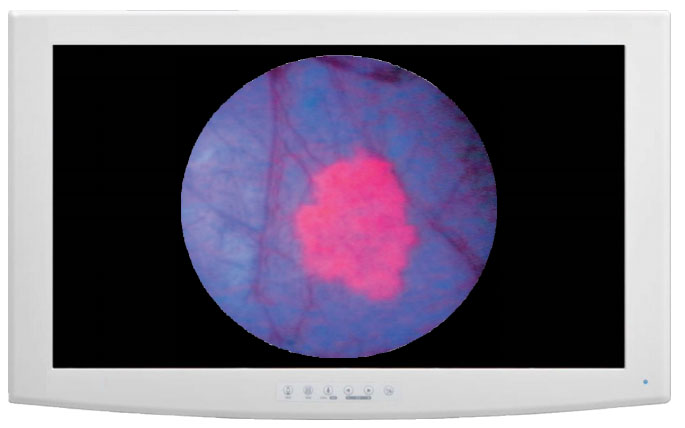His coverage includes personalized medicine diagnostics and some medical device companies. My first question was about diminishing returns of new markers. Have we reached the point where all the new data aren't really affecting treatment plans or patient behavior? "There has always been this very question with diagnostics between information that's nice to have and that seems interesting, and information from specific markers that tells us something that's actionable," he says. "The issue there is just how powerful that prognostic marker is, and I think what we're finding is that there are very few silver bullets or single prognostic markers that rise to a level of making clinicians change opinion. It will rather be combinations of these various biomarkers using certain algorithms that can be incredibly powerful."
DeGeeter gives the quintessential example of Genomic Health's (GHDX:NASDAQ) Oncotype DX test for breast cancer, which is a series of biomarkers. The company is not a pie-in-the-sky story, but it is in fact a real company now with an $850-million market cap. When the company released financials back on Nov. 7, the Street was disappointed, and investors sold shares heavily. But revenues and net income are still growing. He refers to the company as "product-oriented," and he likes it because it has the all-important characteristic of having a stable reimbursement outlook.
Last winter I had asked Kevin where the sweet spot was in personalized medicine. Is it a moving target? Has it changed? "I still think it is in companies that have more of a service model," he says. Sticking with his theme of being in synch with private insurers, Medicaid and Medicare, he says "it's companies that are selling products that are already reimbursed and where reimbursement is pretty well understood, and that can take advantage of the growing test volume and maybe gain some market share from some of the dislocation associated with all of this merger activity.”
One such company is NeoGenomics Laboratories (NGNM:OTCBB), a specialty lab focused on oncology testing. Most of its revenue comes from tests that other companies may also perform. "But NeoGenomics really focuses on blocking and tackling in what's a high-growth segment of the industry. It doesn't have to worry about the vagaries of trying to win reimbursement for a new test." The company's business model seems ideal. It has a tech-only component where the local pathologist is not run out of business but becomes a partner by using NeoGenomics' state-of-the-art instrumentation.
DeGeeter is also a fan of Navidea Biopharmaceuticals Inc. (NAVB:NYSE), which is developing a radiopharmaceutical diagnostic called Lymphoseek that is injected into the lymphatic system before cancer surgery to locate diseased lymph nodes. In the process of dissecting out observable tumor tissue, the surgeon can localize metastatic lesions in lymph nodes and vessels that fluoresce when a gamma detector is held nearby, and remove the offending tissue, thereby giving the patient a much better chance of survival. "Lymphoseek has been in front of the U.S. Food and Drug Administration (FDA) for a little while," he says. "The company actually just submitted its new drug application after getting a complete response back in September. I feel actually really good about that product being approved, most likely by our estimates in Q1/13.” How big can Navidea's Lymphoseek become? "I think it has the potential to be a new standard of care as basically a radiotracer to be used primarily in patients with breast cancer and melanoma," he says.
A new colon cancer biomarker is being developed by EXACT Sciences Corp. (EXAS:NASDAQ), and it's gotten DeGeeter's attention. Oncology is where the money is today, and he sees the company's Cologuard test as a compelling value driver because the alternatives are disquieting to patients. "We've seen the validation data, and they look pretty promising," he says. "It is meant to be used in conjunction with or potentially as an alternative in the screening setting to colonoscopy, which has issues with relatively poor compliance due to the high level of patient discomfort." Unlike many diagnostics, Cologuard will require FDA review before coming to the market. "We think that's likely to go somewhat smoothly with a potential launch later in 2013," he says. "Obviously, it's a large potential market in terms of screening for colorectal cancer.”
Finally, we discuss OPKO Health (OPK:NYSE), which DeGeeter thinks of as "a smaller-cap, discovery healthcare conglomerate." In this case "smaller cap" is a relative term since OPKO does sport a $1.3-billion market cap. The company is developing both diagnostic and biotech products, and there are some programs in the pipeline that "could be novel and bring some unique value" to the enterprise, according to DeGeeter. "At the core of the OPKO Health view of the world is that patients are taking more and more control of their own health care decision-making process and that testing needs to be focused more on screening and on prevention," he says.
One prostate cancer test, called the 4Kscore, is being positioned as a potential alternative to doing a prostate biopsy, which is expensive and uncomfortable. "The benefit there is that we have a very high level of false positives for patients on whom we take prostate biopsies," he says. "A lot of those patients we treat as if they may have prostate cancer or likely are at risk of prostate cancer when, in fact, they don't have disease. The value of the lead test is reduced overtreatment of patients."
To read the entire interview with Kevin DeGeeter, visit www.thelifesciencesreport.com.
From time to time, Streetwise Reports LLC and its directors, officers, employees or members of their families, as well as persons interviewed for articles on the site, may have a long or short position in securities mentioned and may make purchases and/or sales of those securities in the open market or otherwise. Streetwise Reports does not accept stock in exchange for services or render general or specific investment advice and do not endorse or recommend the business, products, services or securities of any industry or company mentioned in this report. Streetwise Reports LLC does not guarantee the accuracy or thoroughness of the information reported



























































